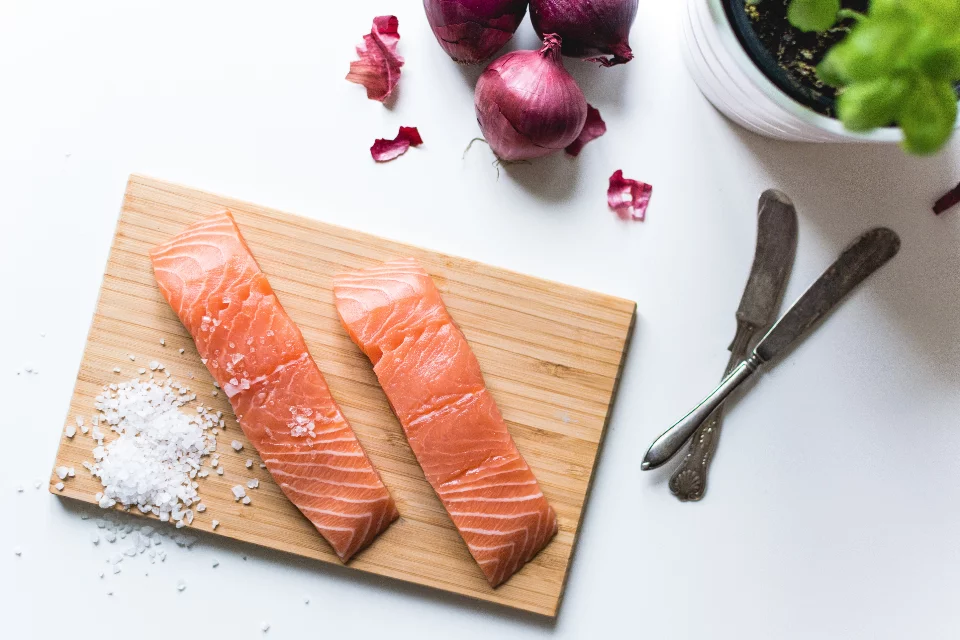Speaking a second (or third) language is a beautiful thing. Being multilingual makes international travel more enjoyable and memorable, it helps you connect with transplants in your hometown, and it can even boost your job prospects — many companies openly prioritize the hiring of staff members who can communicate in more than one language.
Thing is, learning a foreign language isn’t easy. It takes time, commitment, and perseverance. As it turns out, there are ways you can make the process easier, starting with your diet. By ensuring you get enough omega-3 fatty acids on a daily basis, you can help your brain to function at a high level and make the language learning process easy (okay, so it’s not going to be easy, but with a proper diet you at least won’t be hindering yourself).
Omega-3s can boost brain power and help you learn a language faster
It’s no secret that omega-3s are good for you. Many studies conclude that diet plays a big role in proper brain function, and some even show a connection between omega-3s and increased cognitive function. A study from the National Library of Medicine looked at hwo DHA and EPA, common omega-3s in modern over-the-counter supplements, impacted brain function in young adults.
The study found that
“participants’ brains worked ‘less hard’ and achieved a better cognitive performance than prior to supplementation.”
Going even further, the same study found that EPA, which is found in omega-3 supplements like GLX3, can significantly increase functional activation.
“The increase in functional activation and lack of improvement in time or accuracy of cognitive performance following DHA-rich supplementation may indicate that DHA-rich supplementation is less effective than EPA-rich supplementation in enhancing neurocognitive functioning after a 30-day supplementation period in the same group of individuals.”
The benefits of omega-3s on the brain aren’t limited to younger language learners, either. Healthline reported that the brain uses omega-3s to build brain cells, stating,
“Clearly, it is important to make sure you get enough omega-3 fatty acids to avoid some of these detrimental effects on brain function and development.”
How this increased brain power helps you learn a language
Now let’s apply these findings to the specific task of learning a foreign language. Language learning is an intense, long-term activity that takes rigid discipline and an ability to push through an engaging but often sluggish learning process.
For this, you need brainpower!
When your mind functions efficiently, you are better able to process and retain information. To put it simply, a healthy, omega-3 rich diet can help your brain do its job, and when you undertake serious, long-term projects like learning a foreign language, this can help you do so faster and ideally, with less stress.
The brain must work hard to switch between words in two different languages, something that actually can take a lot of energy and focus. We stress repeatedly on the GLX3 blog the importance of proper diet, and this is acutely relevant when enduring brain-intensive tasks like language learning.
Part of the reason behind the boost in brain capacity — both from a dietary and a learning standpoint — is because of the fact that when hearing or speaking a second language, your mind doesn’t automatically connect one word to the next, or one conjugation to the proper tense for the next one, so you’re challenging yourself while simultaneously putting that healthy fuel to work.
The benefits can last long-term, helping you enjoy learning into older age — studies have found that language learning can even help delay Alzheimer’s and dementia. People who aren’t regularly learning and challenging themselves mentally don’t receive the same mental benefits that come with learning a language.
On that same note, those who don’t maintain proper nutrition aren’t giving their brain the long-term benefit of healthy fuel.
The right amount of omega-3s for language learning
Your body needs between 250 and 500 mg of omega-3s per day for ideal function. Because you can’t produce omega-3s naturally — they must be consumed from an outside source — it is up to you to find the best way to get the omega-3s you need.
A supplement comes in very handy in these cases. When balancing learning a new language with other daily tasks like school, work, or taking care of the family, a quick fix keeps you on track without missing a beat. GLX3, for example, provides the recommended daily dose of omega-3s in a 30-day bottle size that you can choose to take in the morning or evening.
Try to build a habit of taking an omega-3 supplement just like you do with your study time. If you study in the evenings, once the home has quieted down and the rest of the day’s must-dos are behind you, take GLX3 at the same time — maybe even store the bottle in your study area or leave a post-it to remind yourself to visit the restroom and take the daily amount from the medicine cabinet.
By getting into a routine around diet and language learning, you’re optimizing your chances of reaching fluency in that new language — and realizing all of the social, professional, and personal benefits that come with it.




















